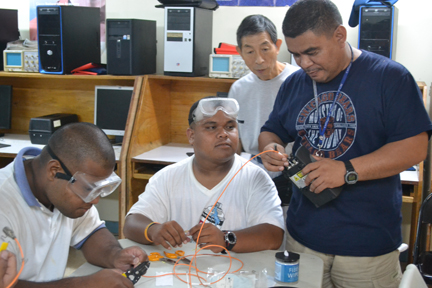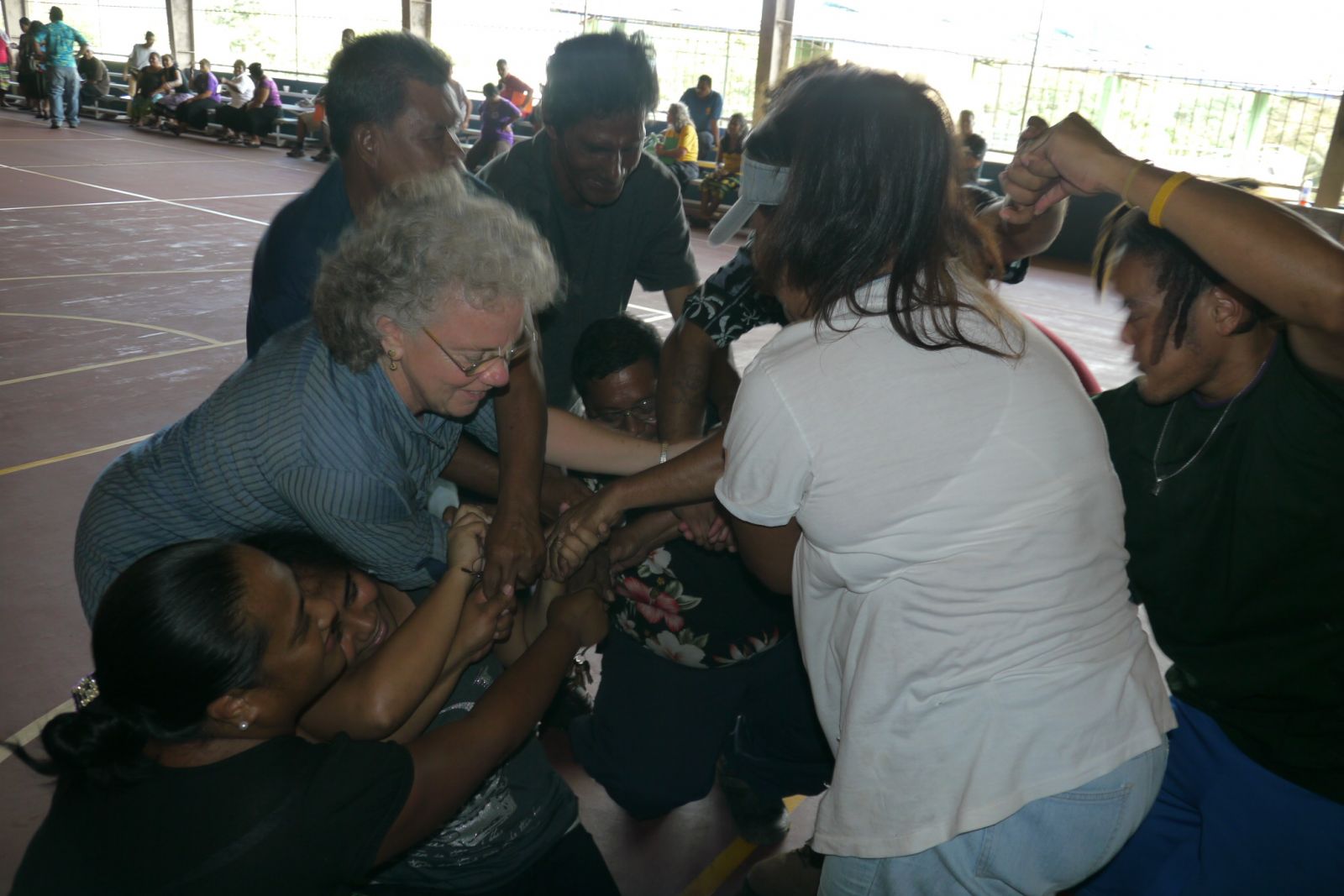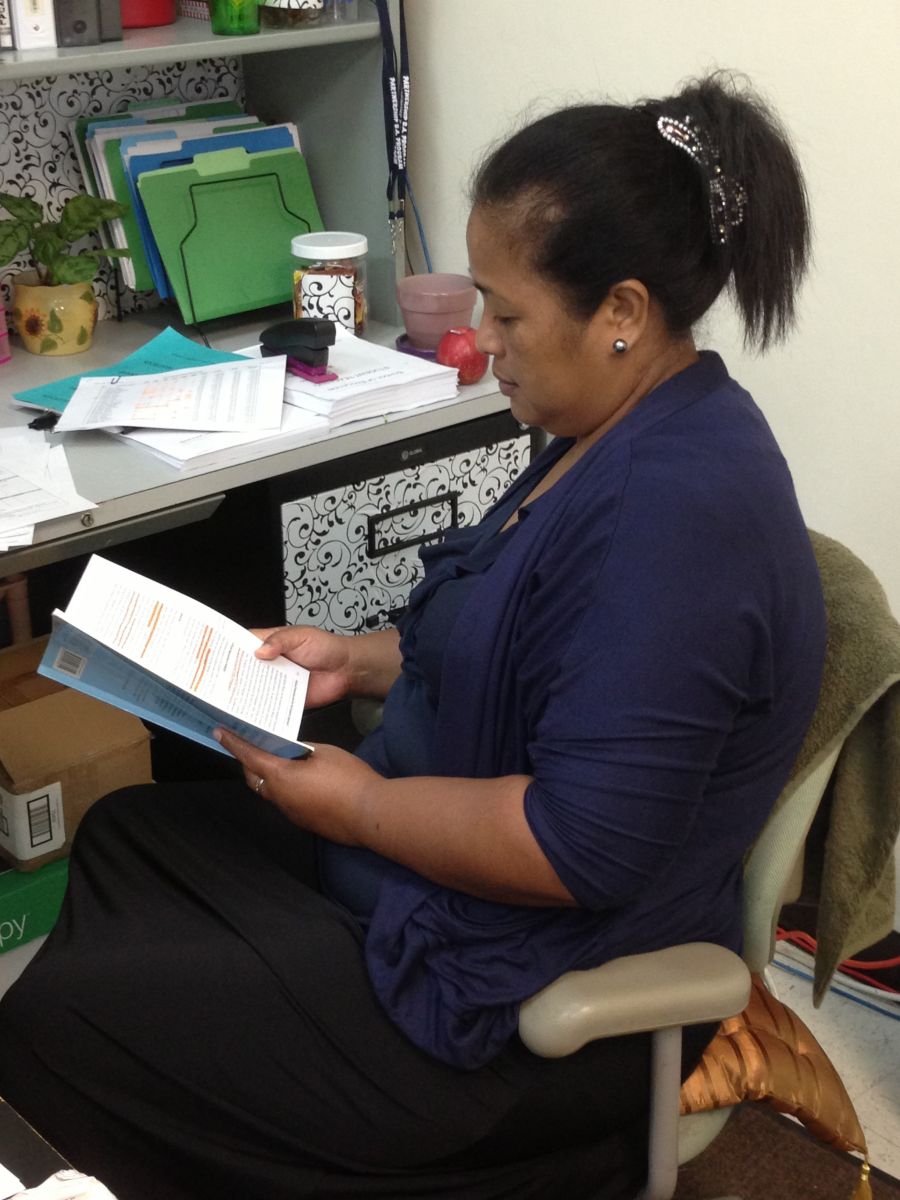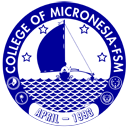Five Faculty Challenges: Be Better Than OK.
Five Faculty Challenges
Faculty members at COM-FSM were presented with five challenges for improvement as a way to encourage everyone to step out of their routines and try something different for school year 2013-2014. The idea came about in part due to the results of an informal survey of the spring 2013 graduating class that produced information that the graduates felt faculty members were “OK”. The challenge is to be better than ‘OK’.
The other reason for the challenge is that two of the new strategic directions at COM-FSM focus on student success and being a learning organization. The Dean of Academic Programs, Karen Simion, noted, “that since academics is the heart of the institution, the faculty members should be leaders in meeting the new strategic directions”. The challenges are outlined below.
Any faculty member who completes and documents all five challenges will receive recognition at the annual incentive awards celebration held in the spring semester.
It is time to fully engage students and take education into the 21st millennium. Jean Piaget wrote, “ The principal goal of education is to create men who are capable of doing new things, not simply repeating what other generations have done – men who are creative, inventive and discoverers.”




Faculty Challenge #1
Experiment with one different teaching strategy that engages students in active learning. In order to meet this challenge you may need to research activities that are considered active learning. You will also need a colleague to observe the implementation of this activity and provide a summary.
Faculty Challenge #2
Read and summarize five professional development articles/books or join a webinar. The articles/books must be related to education and teaching in your content area.
Faculty Challenge #3
Conduct one mini-workshop for your colleagues. The mini-workshop should be at least 1 hour. You may conduct these workshops in pairs or small groups of 3 – 5. The topic can be a ‘best practice’, new approach that works with COM students, new technology, an interesting article you read in challenge #2 and discussion, etc. You will need to submit the poster (announcement) of the workshop, learning outcome(s) of the workshop, attendance sheet and an evaluation of the workshop to the DAP.
Faculty Challenge #4
Conduct one classroom research project and submit a report to DAP and Curriculum and Assessment Committee. You might ask yourself these questions to get started. What has always bothered you? Have you always questioned why things are done a certain way? Is there anything you feel can be improved? Some examples of classroom research are to use a particular teaching strategy and determine if students really learn. A second id is to select one assignment/project you use and if you intend to do this project again, ask THIS YEAR's students what would have helped them with this assignment. What could YOU have done differently? What would THEY have done differently? What would they have found helpful? Have them look at the assignment sheet and find out what was confusing. Have them tell you what worked--directions, topics, time, anything they found that worked well for them. This can be a real eye opener and the approach must be that you and the students are working together to improve a necessary assignment. Use one of your course level or program level assessment results and find out the “why”.
Faculty Challenge #5
Write a reflection paper on your own advising techniques, knowledge and practices. Find one way to improve your advising and implement that strategy. Summarize your strategy and report if there were any improvements. Evidence might be completing an A+ referral form and the student actually shows up for tutoring (form attached). Other examples are that one of the students you advise visits your office for other reasons than to register for classes. A student sends you a thank you email or thanks you in person for your help. Other students begin to seek your assistance. You keep a journal of all student encounters (form attached). Survey your advisees to determine if there was improvement.
